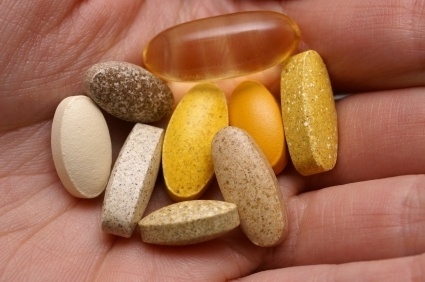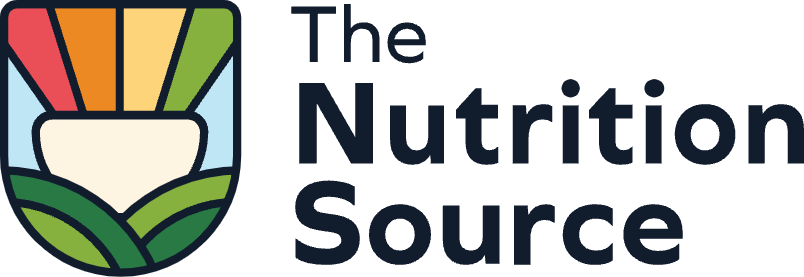
Social distancing and regular handwashing are the most effective and proven methods to reduce risk and spread of the coronavirus disease (COVID-19). However, along with general questions on how to safely shop for and prepare food (addressed here), many are wondering about the more specific role of diet and nutrition during this pandemic. To understand more about the link between nutrition and immunity, and existing evidence on nutrient status, supplementation, and infection, we spoke with Dr. Wafaie Fawzi, Dr. Walter Willett, and PhD student, Dr. Ibraheem Abioye. As more information becomes available on this topic, we will check back with our experts to provide additional updates. Last update: 4.9.20
[En español]
Can you briefly summarize the relationship between nutrition and immunity?
We have known for a long time that nutrition is intricately linked to immunity and to the risk and severity of infections. Poorly nourished individuals are at a greater risk of various bacterial, viral, and other infections. Conversely, chronic or severe infections lead to nutritional disorders or worsen the nutritional status of affected people. Therefore, it is imperative for all of us to pay attention to our diet and nutritional status during the ongoing COVID-19 pandemic. Furthermore, the clinical course of COVID-19 disease tends to be more severe among older individuals and among people with chronic conditions, such as diabetes, hypertension and cancer that are partly related to nutrition. [1] Although data are not yet available, co-infections, such as HIV/AIDS, may also be associated with more severe outcomes, and optimal nutrition plays an important role in maintaining health among people with such infections.
Indeed, consuming good quality diets is always desirable, and this is particularly important during the COVID-19 pandemic. A healthy diet, as depicted by the Healthy Eating Plate, emphasizes fruits, vegetables, whole grains, legumes, and nuts, moderate consumption of fish, dairy foods, and poultry, and limited intake of red and processed meat, refined carbohydrates, and sugar. Added fats should be primarily liquid oils such as olive, canola, or soybean oil. Such a diet will provide appropriate amounts of healthy macronutrients and essential minerals and vitamins. Eating high-quality sources of protein, fat, and carbohydrate can help maintain a healthy weight and good metabolic state; this is not a time for highly restrictive, crash diets. If someone does develop a COVID-19 infection, eating enough of these healthy calories to prevent unintended weight loss is important. Adequate amounts of minerals and vitamins provided by a healthy diet helps to ensure sufficient numbers of immune cells and antibodies, which are important as the body mounts a response to infections.
Although we have no data regarding nutritional factors in relation to risk and severity of COVID-19, what are some examples of existing evidence on nutrition and infection that would be important to consider?
There have been many studies evaluating intakes of specific nutrients in relation to other infections. To give a few examples:
- Zinc is a component of many enzymes and transcription factors in cells all over the body, and inadequate zinc levels limit the individual’s ability to mount an adequate immune response to infections. [2] Multiple meta-analyses and pooled analyses of randomized controlled trials (RCTs) have shown that oral zinc supplementation reduces the incidence rate of acute respiratory infections by 35%, shortens the duration of flu-like symptoms by approximately 2 days, and improves the rate of recovery. [3,4] The studies were conducted in the US as well as in multiple low- and middle-income countries such as India, South Africa, and Peru. The dose of zinc in these studies ranged from 20 mg/week to 92 mg/day. Dose does not appear to be the main driver of the effectiveness of zinc supplementation.
- Vitamin C is a cofactor for many enzymes. It enhances the function of many enzymes all over the body by keeping their metal ions in the reduced form. It also acts as an antioxidant, limiting inflammation and tissue damage associated with immune responses. [5] RCTs evaluating the effectiveness of vitamin C have been conducted among soldiers, young boys, and older people in the US, the Soviet Union, the UK, and Japan. In these studies, vitamin C supplementation was shown to significantly reduce the incidence of respiratory tract infections. [6] The effectiveness of vitamin C has also been studied among hospitalized patients in the US, Egypt, and Iran, admitted for a wide variety of conditions including severe sepsis, postoperative complications, burns, lung contusions, and cardiac conditions. [7] Vitamin C was shown to reduce the duration of stay in the intensive care unit and need for mechanical ventilation among these patients. [8] The dose of vitamin C varied from 1-3 g/day, and dose does not appear to be the main driver of effectiveness. Doses of vitamin C above 2 g/day should be avoided outside of medical care.
- Evidence from several clinical trials and pooled studies show that vitamin D supplementation lowers the odds of developing acute respiratory tract infections (most of which are assumed to be due to viruses) by 12% to 75%. [9-12] These studies included both the seasonal and pandemic flu caused by H1N1 virus in 2009. The beneficial effect of supplementation was seen in patients across all ages, and individuals with pre-existing chronic illnesses. [13] Among those who were infected, flu symptoms were fewer and recovery was earlier if they had received doses of vitamin D greater than 1000 IU. [14] The benefits were relatively greater in individuals with vitamin D deficiency than in those who had adequate levels of vitamin D.
- Older adults are most often deficient in these helpful micronutrients, and thus can derive the greatest benefit from supplementation. [15,16]
You mention that optimal nutrition plays an important role in maintaining health among people with infections such as HIV/AIDS. Can you expand on that a bit more?
Many acute respiratory tract infections tend to be more severe in people living with HIV/AIDS and other immune deficiencies, [17] and surveillance efforts for COVID-19 targeting these populations are important. Nutrition also has an important role in this category of people. First, HIV infection and malnutrition tend to co-exist. As the disease becomes severe, many people living with HIV tend to be undernourished. Some HIV drugs also lead to metabolic disease. Second, among patients with HIV infection, poor nutritional status and micronutrient deficiencies worsen HIV disease and increase the risk of treatment failure and death. Before the advent of antiretroviral therapy, studies demonstrated that people living with HIV with higher quality diets and better nutritional status tended to live longer and had fewer complications. They were less likely to be anemic and had higher CD4 cell counts (counts of white blood cells that fight infection). Randomized controlled trials and large cohort studies in Africa and Asia have also shown that the use of multivitamins leads to fewer deaths and slows down disease progression considerably. [18-20] The findings from these studies were consistent whether the HIV-infected patients were receiving antiretroviral therapy or not. In the US, optimal intake of vitamins and minerals was similarly associated with reduced HIV disease progression and mortality. [21] Therefore, good quality diet and multivitamin supplementation are likely to be helpful in reducing the risk of COVID-19 infection among people with HIV and similar diseases.
Is there a role for nutritional supplements in the COVID-19 Pandemic?
Dietary surveys in the US and elsewhere show that most people are consuming diets that do not meet national guidelines—often because of availability or cost—and such diets may not provide optimal quantities of essential vitamins and minerals. Currently, the ongoing COVID-19 pandemic is likely to put many more individuals at risk of food insecurity and make consuming a healthy diet even more difficult. This becomes increasingly likely if the infection risk-mitigation strategies do not include approaches to ensure essential supplies are effectively distributed and accessible, or if the pandemic affects productivity of the agricultural sector.
Although we are not aware of good data on the effects of nutritional supplements on risk or severity of COVID-19, existing evidence indicates that supplements of several nutrients can reduce risk or severity of some viral infections, particularly among people with inadequate dietary sources. Therefore, prudence suggests that inadequate intakes of essential minerals and vitamins be avoided at this time, and supplements can help fill some gaps. Some key points:
- Taking a standard (RDA) multivitamin/multimineral supplement as a nutritional safety net is reasonable. These supplements are a relatively inexpensive (should cost less than $40 USD for a six month supply) and convenient way to replenish and maintain micronutrient stores.
- Maintaining adequate levels of vitamin D is particularly important. Vitamin D is normally produced in our skin when exposed to sunlight, and in the late winter and spring blood levels of vitamin D tend to be low because of reduced sun exposure. Staying indoors will further reduce blood levels. Although we do not have evidence at this time whether vitamin D supplements will reduce the severity of COVID-19, they might, especially among people with low levels. Because the cost of blood testing is usually more than the cost of supplements (and not appropriate while our health care system is seriously stressed), and because there are other benefits from maintaining adequate vitamin D, taking supplemental vitamin D would be reasonable for most people to consider.
- Many of the commonly available multivitamin/multimineral supplements do contain 1000 or 2000 IU of vitamin D, which is a good target.
- People with darker skin (who tend to have lower blood levels because melanin in the skin blocks ultraviolet light) may need more vitamin D; up to 4000 IU per day is considered safe.
- Many of the commonly available multivitamin/multimineral supplements do contain 1000 or 2000 IU of vitamin D, which is a good target.
-
-
- If vitamin D supplements are not available, a backup option is to take advantage of some sunlight, which is now starting to become intense enough to produce vitamin D. Expose as much skin as possible in the middle of the day and begin for short periods, being very careful to avoid burns. 15 minutes can produce a large amount of vitamin D in light skin; 3 or 4 times longer will likely be needed for dark skin. Note that this is short-term guidance related to limited vitamin D supplement availability during the current pandemic; and not advisable long-term. Because sun exposure can contribute to skin cancers, in general it is important to avoid excessive sun exposure or use of tanning beds.
-
- At this time, megadose supplements (many times the recommended dietary allowance, or RDA) do not appear justified, and these can sometimes be harmful.
- Avoid any supplements promoting wild health claims. At this time, the US Food and Drug Administration has been monitoring and warning companies offering fraudulent products claiming to prevent, diagnose, treat, or cure COVID-19.
- Nutritional supplements should be not be considered to be substitutes for a good diet, because no supplements contain all the benefits provided by healthy foods.
Related
Food safety, nutrition, and wellness during COVID-19

